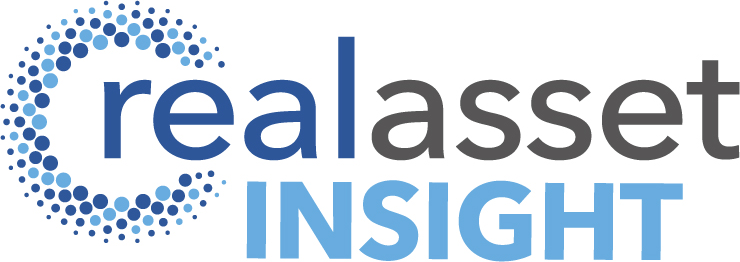‘Big portfolio or small building – we can digitalise everything’

Chainels has evolved from a proptech start-up focused on Dutch retail to a Europe-wide company serving tenants and landlords in a variety sectors. Nicol Dynes reports.
Proptech is evolving constantly to provide real estate companies with what they need in a fast-changing market. An example is Chainels, which started around 10 years ago in the Netherlands as a community platform for the retail sector, but which has now expanded to encompass residential, offices and all asset classes with multi-tenant buildings, as well as transport hubs.
The company’s headquarters are still in Rotterdam, but it now has a European footprint, operating in 15 countries, and is working on a project in South America. The Chainels platform now spans more than 400 buildings and communities.
The Chainels tenant experience app, originally designed for shopping centres and branded with the client’s colours and logo, sought to improve and modernise communications between landlords, property managers and tenants.
“We’ve evolved the platform by broadening our scope from retail in response to clients’ demands,” Erwin Buckers, founder and chief executive of Chainels, tells Real Asset Insight. “It was driven by the market: retail was not doing well, so many of our clients changed their strategy, maybe adding a residential tower on top of a shopping centre so it became a mixed-use asset. Pure retail funds also changed to diversify their portfolios and spread risk.”
From retail to mixed-use
The first mixed-use project Chainels was involved in was in London’s Seven Dials three years ago. Since then, there have been many more. The company has ongoing collaborations with companies that have portfolios spanning different countries, such as Redevco and Multi Corporation, and it is now present in Vienna airport and in the main railway stations in the Netherlands to facilitate internal communications with retailers and service providers.
The app has been made available for office, retail and residential tenants, delivering the same solutions but with different features.
“The advantage for us was that it was easy to be flexible,” says Buckers. “We talked to different landlords and adapted the features of our apps, disabling the ones targeted at retail, such as turnover rent models, to report monthly workflows, and we built new features for resi or offices.”
‘A few years ago tenants might not have wanted to use an app to access the building, but now there is no question. Habits have changed and paperwork flows have been removed now, so the app is the only way to do things.’
Erwin Buckers, Chainels

There are different dynamics in multi-tenant buildings, with tenants in each asset type having different needs. Office tenants might use the app to book meeting rooms and organise work events, while residential tenants will focus on safety and security in the building and on the social aspect to create a sense of community.
“The app can be very instrumental in giving tenants that are new to the building a sense of belonging, with access to events and special offers like gym subscriptions or free coffees,” says Buckers. “On the security front, the app gives tenants smart access as they can use it to open doors.”
Security in demand
Security and privacy are increasingly in demand, especially in high-end residential in big cities, where people want to feel they live in a closed environment which is kept safe. The data belongs to the clients and is kept private, as the platform is private, which gives users confidence.
The combination of ease of use, convenience and personalisation drives high engagement levels, adds Buckers. “A few years ago tenants might not have wanted to use an app to access the building, but now there is no question. Habits have changed and paperwork flows have been removed now, so the app is the only way to do things, whether it’s opening the front door or booking a room for an event.”
The company’s customer service teams host workshops in the buildings and communities to explain how the app can be used to its full potential. There has been a distinct change in behaviour after the pandemic, Buckers notes, as “technology is easier to sell. One of the few good things about covid-19 is that it pushed digitalisation. Another is that it made ESG and sustainability more of a priority.”

Tenant feedback
Companies and tenants can provide feedback on the app which Chainels uses to make modifications and adapt it. “We always listen and we learn a lot from our clients. It’s always work in progress, we’re constantly evolving. We’re a technology company with a lot of developers working to make it better every day,” explains Buckers.
One of the biggest drivers of change will be artificial intelligence, he adds. “AI will change everything, making things easier and smarter. Simple tasks will be automated so that people can focus on the more important things.”
While much software ages quickly and needs constant updates, the Chainels app is kept up to date with the latest version and content. “We operate like social media platforms, like Spotify or Netflix, so we do not need to bother clients with the need for updates,” says Buckers.
The coming months will be interesting for the proptech sector as valuations of technology companies have dropped and many big names have been laying people off. He believes this will lead to consolidation in the sector and create opportunities for nimble companies, such as finding top talent.
Speeding up growth
Chainels has been profitable from the start, but now it wants to speed up growth. It has just raised €3 million through Series A investment from venture capital firms Capricorn Partners, via its Capricorn Digital Growth Fund, and Aconterra.
“We want to expand further in Europe and we want to keep investing in our team and our technology,” explains Buckers. “We have many requests to work for more companies and our tool is available in all languages and is scalable.
“Some solutions out there are only affordable to a few, but we can digitalise everything, whether it’s a big portfolio or a small building.”

